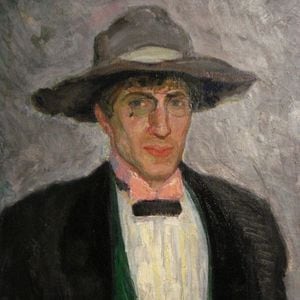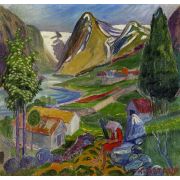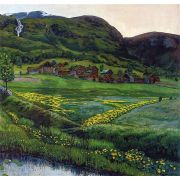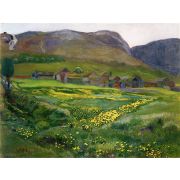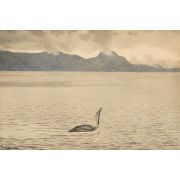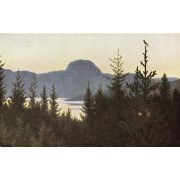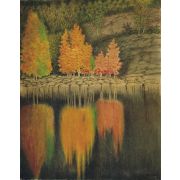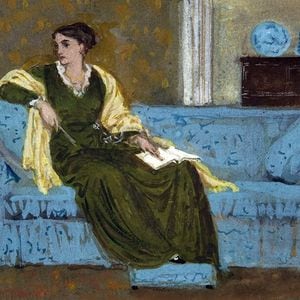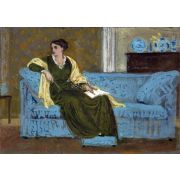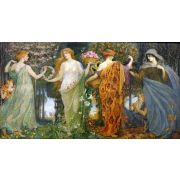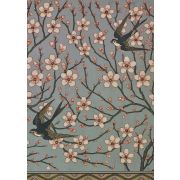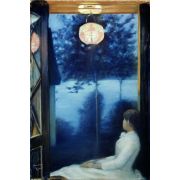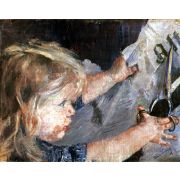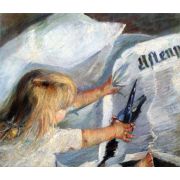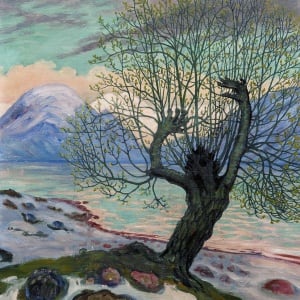
Neo-Romanticism
Neo-Romanticism
1 to 4 out of 4 artists
Nicolai Astrup
1880 -1928, Norwegian / Neo-Romanticism, 254 works
Theodor Severin Kittelsen
1857 -1914, Norwegian / Neo-Romanticism, 77 works
Walter Crane
1845 -1915, British / Neo-Romanticism, 32 works
1 to 4 out of 4 artists
Neo-romanticism refers to philosophical, literary, musical, artistic, architectural, and social movements that arose after Romanticism and include its aspects. Carl Dahlhaus characterizes Wagner's music as "a late blooming of romanticism in a positivist era" He considers it identical to "the age of Wagner," from 1850 to 1890—the commencement of modernism, with Richard Strauss and Gustav Mahler as early exponents (Dahlhaus 1979, 98–99, 102, 105). It's been used to describe authors, artists, and musicians from 1840 to the present who rejected realism, naturalism, or avant-garde modernism.
Neo-romanticism and Romanticism are opposed to naturalism, which is antagonistic to music (Dahlhaus 1979, 100). Naturalism condemned Romantic literature as an idealized reality distortion after German unification in 1871. Naturalism was deemed unable to fill the current "vacuum." Hermann Bahr, Heinrich Mann, and Eugen Diederichs opposed naturalism and materialism under the banner of "neo-romanticism," advocating a cultural reorientation responding to "the soul's need for a purpose and substance in existence" (Kohlenbach 2009, 261).
"Neo-romanticism" was offered as an alternative term for the late 1970s and early 1980s Neue Einfachheit composers. This term has been criticized for lack of specificity due to the multiplicity of these composers, led by Wolfgang Rihm (Hentschel 2006, 111).
Neo-romanticism refers to a loosely linked style of British landscape painting from the 1930s through the 1950s. Raymond Mortimer named it in the New Statesman in March 1942. These painters looked back to William Blake and Samuel Palmer but were also inspired by Pablo Picasso, André Masson, and Pavel Tchelitchew (Clark and Clarke 2001; Hopkins 2001). The danger of invasion prompted this movement during WWII. This movement was started by Paul Nash, John Piper, Henry Moore, Ivon Hitchens, and Graham Sutherland. John Minton, Michael Ayrton, John Craxton, Keith Vaughan, Robert Colquhoun, and Robert MacBryde were younger (Button 1996).
